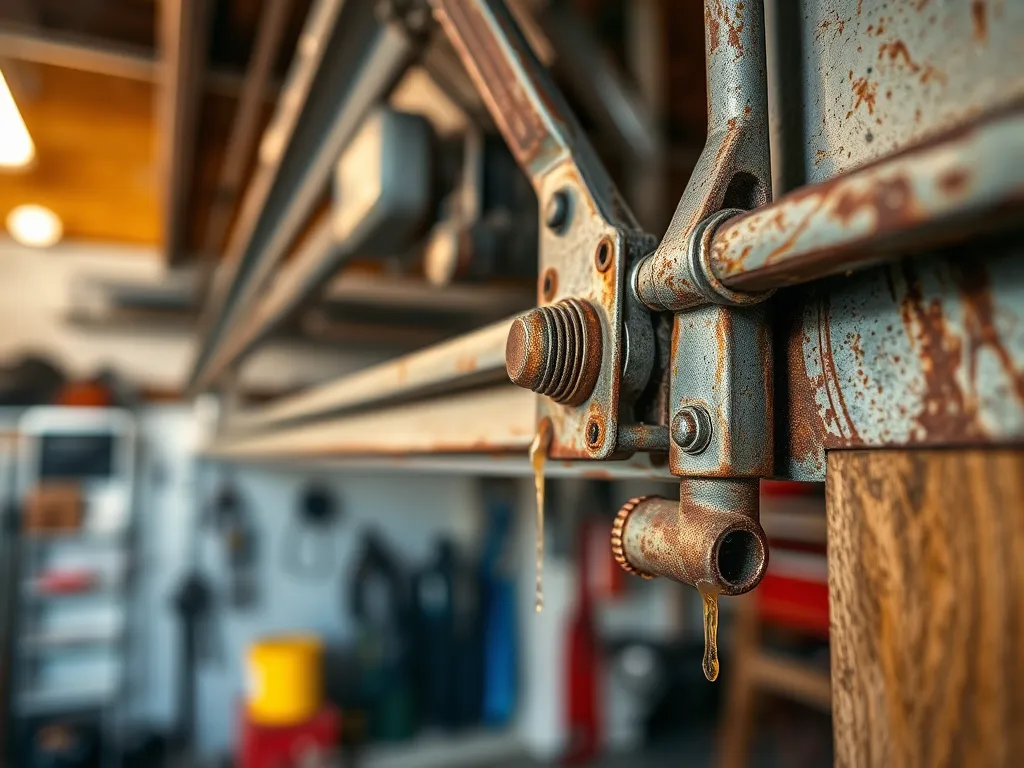Top Signs that Your Garage Door Needs Lubrication

Garage Door Maintenance: Essential Tips and Guidelines
Garage door maintenance is a crucial part of homeownership that is often overlooked. Regular maintenance not only ensures the smooth operation of your garage door but also prolongs its lifespan and keeps your vehicle and belongings safe. Neglecting proper care can lead to costly repairs and safety hazards.
Executing a difficult operation requires precision and skill, ensuring safety and efficiency in high-stakes environments.
A well-maintained garage door will function properly and enhance the curb appeal of your home. From routine inspections to lubrication, there are several key aspects of garage door maintenance that all homeowners should be aware of. Taking a proactive approach can save you both time and money in the long run.
Garage door maintenance involves several steps, including checking springs, tracks, safety features, and of course, lubrication. It is vital to be aware of the signs that indicate your garage door needs attention. By understanding what’s needed for proper maintenance, homeowners can prevent significant issues before they escalate.
Additionally, knowing when to perform maintenance and when to call in a professional can make all the difference. Garage door maintenance is not just about ensuring functionality but also about creating a safe environment around your home. Ensuring that your garage door operates smoothly can prevent accidents caused by malfunctioning doors.
In conclusion, garage door maintenance is an essential responsibility for any homeowner. Understanding the importance of regular upkeep, knowing how to lubricate your garage door, recognizing signs of wear and tear, and weighing the benefits of DIY versus professional help are all vital components of maintaining a reliable and functional garage door.
Monitoring increased energy usage is crucial for identifying potential inefficiencies and optimizing operational costs in both homes and businesses.
Importance of Lubrication for Garage Doors
Lubrication is a key factor in garage door maintenance that many homeowners often overlook. Proper lubrication significantly contributes to the longevity of your garage door, reducing friction and wear on moving parts. A well-lubricated door can last longer and require fewer repairs, ultimately saving you money.
The ominous sound of metal-on-metal grinding often signals a need for immediate machinery maintenance to prevent costly repairs.
Beyond longevity, lubrication plays a crucial role in safety. A garage door that operates smoothly reduces the risk of malfunction, ensuring that it opens and closes as intended without sudden stops or jerks that can cause injuries or accidents.
Common parts that require lubrication include springs, rollers, hinges, and tracks. These components experience the most movement and friction, so applying the right lubricant can keep them functioning optimally and prevent premature wear and tear.
Signs Your Garage Door Needs Lubrication
One of the first signs that your garage door needs lubrication is unusual noises when opening or closing. If you hear grinding, squeaking, or rattling sounds, it’s a strong indication that lubrication is needed to ease the friction between moving parts.
Another sign is the slow movement of the garage door. If you notice that your garage door is taking longer than usual to open or close, it may be struggling due to lack of lubrication. This sluggish movement can be a precursor to more significant issues if left unaddressed.
Visible rust or signs of wear on components are also indicators that lubrication is overdue. Rust can weaken metal parts, while worn out hardware can lead to malfunction. Regular inspections can help catch these issues early.
Best Practices for Lubricating Garage Doors
When lubricating garage doors, it’s essential to choose the right lubricant. Recommended lubricants include silicone spray, lithium grease, or a dedicated garage door lubricant. Avoid using WD-40, as it is primarily a cleaning agent and not a long-lasting lubricant.
To effectively lubricate your garage door, start by cleaning all moving parts to remove dirt and debris. Then, apply lubricant to the rollers, hinges, springs, and tracks. Ensure you follow the manufacturer's guidelines for your specific door model, taking care to avoid over-lubricating, which can attract more dirt and grime.
Frequency of lubrication maintenance can vary based on usage. However, a good rule of thumb is to lubricate your garage door at least twice a year or more frequently if you use it regularly. Seasonal changes can also affect how often you need to address lubrication.
Common Garage Door Issues Due to Lack of Lubrication
One of the most significant issues caused by lack of lubrication is increased wear and tear on components. Without proper lubrication, parts like springs and rollers can degrade faster, leading to more frequent replacements and potentially dangerous situations.
Additionally, malfunctioning sensors and safety features can arise from neglecting lubrication. These components are intended to stop or reverse the door's movement in dangerous situations. If they are not functioning correctly due to lack of lubrication, this can pose a serious safety risk.
Finally, higher energy consumption when operating the garage door is also a common effect of insufficient lubrication. A door that has to work harder to move can lead to increased energy bills, making regular maintenance a cost-effective approach.
DIY vs. Professional Garage Door Maintenance
Homeowners can often handle basic lubrication tasks themselves, especially if they maintain a regular schedule. Performing routine checks and applying lubricant as needed can be straightforward, making it a viable DIY project.
However, hiring a professional technician can offer several benefits, including a more thorough inspection and maintenance service. Professionals bring expertise and can spot issues that may not be visible to an untrained eye, providing peace of mind.
A cost analysis of DIY maintenance versus professional help can vary. DIY might save you money upfront, but professional service can prevent costly repairs in the future. Ultimately, determining the right approach depends on the complexity of the issues and the homeowner's confidence in performing the maintenance.